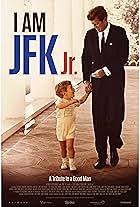JFK Jr.: Legacy and Impact on American Culture

Introduction
The legacy of John F. Kennedy Jr. continues to resonate in American culture and politics nearly 25 years after his tragic death. As the son of the 35th President of the United States, JFK Jr. was not only a public figure but also a symbol of a generation. His life and untimely demise have sparked numerous discussions regarding his influence on democracy, media, and American values.
Main Body
John F. Kennedy Jr. was born on November 25, 1960, into the politically illustrious Kennedy family. He carved his own path as a lawyer, magazine publisher, and activist. In 1995, he founded the political magazine ‘George,’ which aimed to engage younger voters in the political process. JFK Jr.’s unique approach to politics was characterized by his youthful enthusiasm and desire for change, resonating with a generation eager for reform.
His untimely death in a plane crash on July 16, 1999, shocked the nation and left a void in public life. Thousands attended his funeral, showcasing his enduring legacy and the impact he had made in just 39 years. In the aftermath of his passing, discussions around his potential political career heightened. Many believed that JFK Jr. had the charisma and dedication required to be a key player in American politics, a sentiment that continues to be shared today.
Current Events and Discussions
Recent years have seen a resurgence of interest in JFK Jr., particularly with the advent of conspiracy theories surrounding his death. Some factions have propagated unfounded claims that he is alive and will return as a political figure. While these theories lack credible evidence, they highlight JFK Jr.’s enduring mystique and the fascination with his legacy.
Moreover, Kennedy’s commitment to issues like civil rights and the environment has remained relevant. Many young politicians and activists draw inspiration from his approach to public service and advocacy. His story continues to resonate, especially in the context of ongoing debates about democracy and civic engagement.
Conclusion
John F. Kennedy Jr. remains a figure of intrigue and admiration in American history. His impact resonates through his contributions to media, political engagement, and social issues. While speculation about his potential role in modern politics may continue, his legacy serves as a reminder of the importance of active citizenship and the power of youthful passion in driving change. As discussions about JFK Jr. evolve and adapt to modern contexts, he remains a symbol of hope and inspiration for many.









